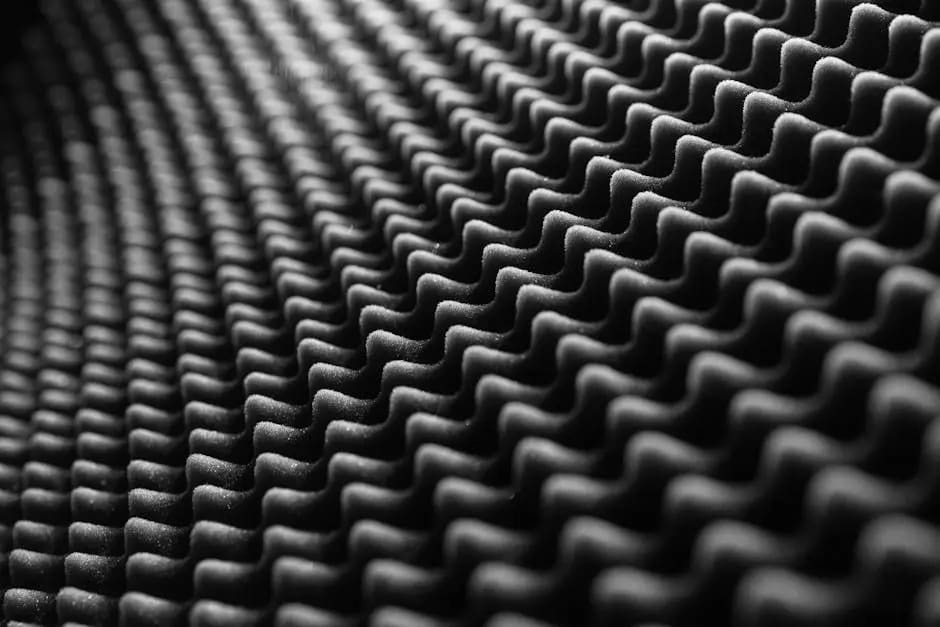
Foam Expertise from Rocon Foam
At Rocon Foam, we manufacture and supply high-quality closed-cell insulation foam that supports the UK’s growing demand for energy-efficient, high-performance buildings. Whether you’re working on a domestic renovation, new build, or commercial retrofit, closed-cell foam offers a combination of thermal performance, moisture control, and structural support that few materials can match.
What is Closed-Cell Foam?
Closed-cell foam is an insulation material composed of tightly packed, closed cells that prevent air and moisture penetration. Unlike open-cell foam, which is soft and spongy, closed-cell foam is rigid, dense, and self-supporting—offering a unique blend of strength and efficiency.
It’s typically made from polyurethane or polystyrene and is used in:
- Wall and roof insulation
- Basement and subfloor applications
- Pipe insulation and HVAC systems
- Commercial and industrial building envelopes
Thanks to its compact structure, it offers one of the highest R-values of any commonly used insulation product.
1. Superior Thermal Performance
When it comes to insulation, thermal resistance—or R-value—matters. Closed-cell foam provides high R-values per inch, meaning less heat escapes in winter and less enters in summer.
Its air-tight seal helps to minimise thermal bridging, which prevents energy loss through studs, joists, and other structural elements. This makes it especially valuable in achieving low-energy building standards and meeting strict energy performance targets.
2. Moisture and Vapour Control
Moisture-resistant insulation foam is a must in damp or high-humidity environments. Closed-cell foam resists water penetration and acts as a vapour barrier, reducing the risk of:
- Mould growth
- Timber rot
- Damp-related structural damage
By sealing off moisture pathways, this foam helps maintain better indoor air quality and prolongs the lifespan of internal finishes.
3. Structural Integrity and Load Support
Unlike traditional insulation batts or loose-fill, closed-cell foam adds rigidity and reinforcement to surfaces. Its dense structure can increase the structural strength of walls, ceilings, and roofs, making it an asset in:
- High-wind or flood-prone areas
- Lightweight framing systems
- Off-site modular builds
This dual function—as insulation and structural enhancement—makes closed-cell foam a smart choice for high-performance building designs.
4. Acoustic Performance and Soundproofing
Closed-cell foam’s density also contributes to sound dampening. It absorbs airborne noise and helps reduce reverberation in open spaces. For urban homes, flats, or commercial premises, foam that combines insulation and sound control offers an ideal multi-purpose solution.
Whether you’re insulating a music room, bedroom, or boardroom, this foam adds value in creating quieter, more comfortable environments.
5. Wide-Ranging Applications
Closed-cell foam insulation benefits go beyond thermal and acoustic performance. Its versatility makes it ideal for:
- Roof insulation (pitched and flat)
- Basement walls and floors
- External wall insulation systems (EWI)
- Cold storage and refrigeration units
- Marine and transport sectors
Its rigid nature means it can be cut to precise dimensions and installed in irregular spaces. For contractors and DIY users alike, this makes handling and fitting quicker and more reliable.
6. Cost-Effectiveness Over Time
While closed-cell thermal barrier solutions may require a higher upfront investment, the long-term savings are considerable. Benefits include:
- Reduced energy bills
- Fewer repairs from moisture damage
- Longer insulation lifespan
- Potential increases in property value
When you consider the total cost of ownership, closed-cell foam often provides the best return—especially when used in key thermal envelope locations.
7. Sustainable Performance
Closed-cell foam helps reduce carbon emissions by lowering a building’s energy demand. Many formulations now include:
- Low-GWP blowing agents
- Recycled content
- Low-VOC emissions
When installed as part of a whole-building efficiency plan, closed-cell foam helps homeowners and businesses achieve sustainability and regulatory compliance goals.
Why Choose Rocon Foam?
We supply closed-cell insulation foam to contractors, developers, architects, and homeowners across the UK. Our solutions are backed by:
- 30+ years of foam engineering expertise
- ISO9001-certified manufacturing
- Custom-cut foam panels and components
- Fast UK delivery and technical advice
Whether you’re building to Passivhaus standards or improving a traditional property’s performance, Rocon Foam provides the right materials to get the job done—efficiently, effectively, and sustainably.
FAQs About Closed-Cell Foam Insulation
What is the R-value of closed-cell foam?
It typically ranges from R6 to R7 per inch, depending on formulation and application.
Can closed-cell foam be used in basements?
Yes. Its moisture resistance makes it ideal for basement walls, floors, and crawlspaces.
Does closed-cell foam add to a building’s structure?
Yes. Its density increases structural stiffness and helps reduce shifting or settling.
Is closed-cell foam safe for homes?
Absolutely. It is non-toxic once cured and contributes to better air quality by resisting mould and condensation.
Ready to Insulate Smarter?
Closed-cell foam combines thermal resistance, structural strength, moisture control, and acoustic performance into one powerful material. If you’re looking to build better or retrofit smarter, we’re here to help.
📞 Contact Rocon Foam
Phone: 01905 26616
Email: roconfoam@gmail.com
Address: Unit 14 Shrub Hill Ind. Estate, Tolladine Road, Worcester WR4 9EL
